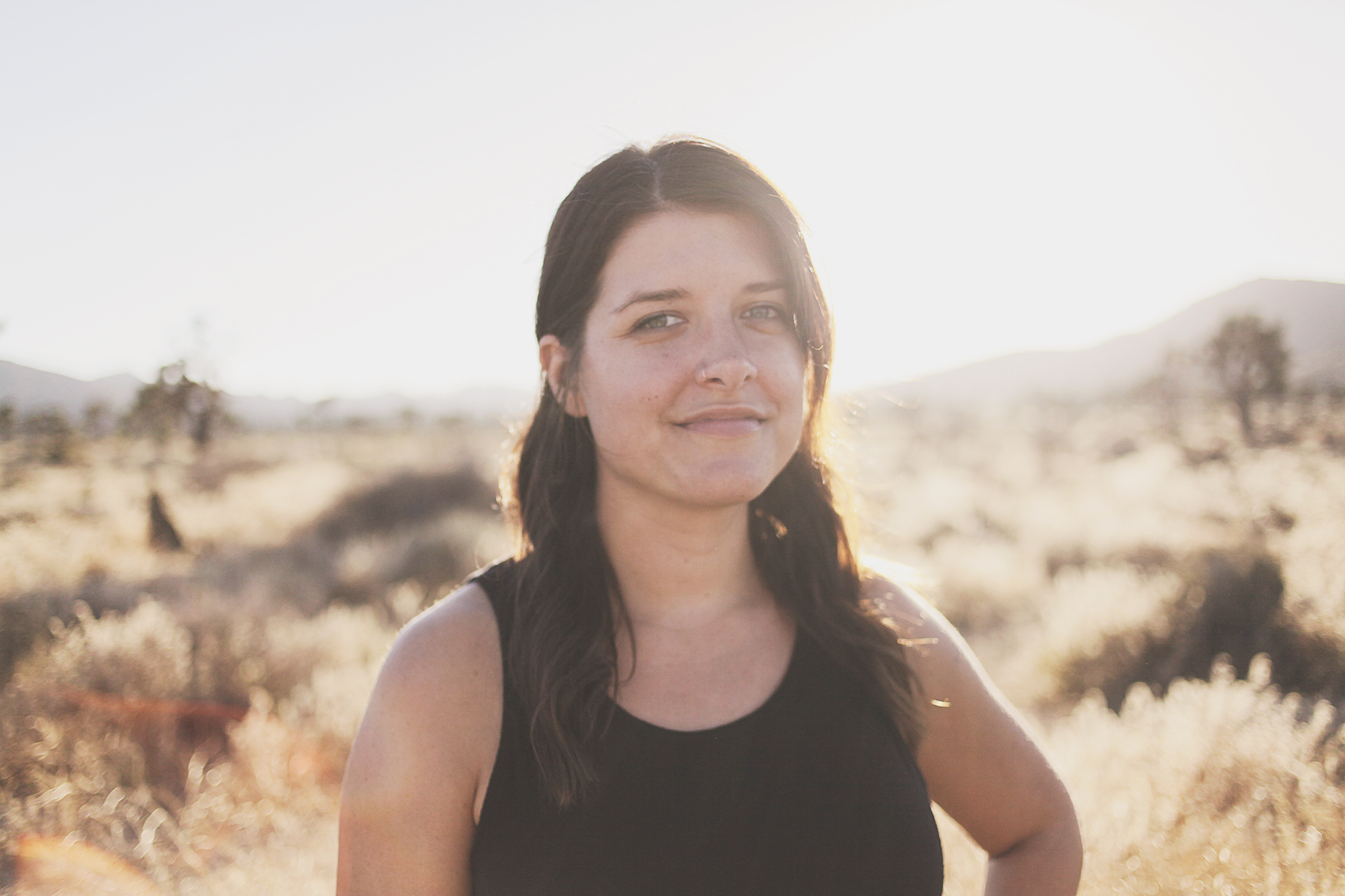I am 31 and I still have endometriosis.
Five years ago, I wrote a post entitled, “I am 26 and I have endometriosis.”
I’m 31 now, and still have endometriosis.
I wrote that article two years after being diagnosed, on the brink of my second surgery in ten months. I hadn’t come across any remotely positive stories of women struggling with endometriosis, and although I surely didn’t have any kind of miracle to share, I did have a story about self-care and resilience and agency. Since writing that article in 2014, it’s become my most-read blog post. I’ve had multiple women reach out to me, sharing their stories and wanting to know what came of the surgery and how I am now.
I figure it’s time for an update.
I did not remove my ovary.
Instead, after being told by my (male) fertility specialist that I should take drastic, life-altering measures at the age of 26 that wouldn’t even guarantee anything, I got a second opinion.
I cannot stress how much I now believe in this idea of the second opinion.
It hadn’t even occurred to me that there could be a differing opinion. Despite the fact that I’d already learned, time and time again, that doctors don’t know everything, I still believed that if my doctor was telling me it was so, it must be so. How can there be room for ambiguity in medicine?
As it turns out, there can be a lot of ambiguity in medicine.
A dear friend of mine in Providence referred me to her OB-GYN, a kind man who was known in the community for supporting nurse midwives and doulas in a way that many medical professionals didn’t. He was booked out for months, so she asked him for a special favor (as a doula and birth photographer, she knew him well) and I got an appointment within weeks. Goodness am I grateful to them both.
This man listened to my story and smiled softly and said gently, “I don’t think we need to do anything that drastic at your age.”
I must have asked him about five times if he was sure, followed by a hundred questions.
Endometriosis is a tricky disease. It’s largely ruled by hormones, which are so intricate that even the most highly trained medical professionals don’t entirely understand them, and so not that much is actually known about how endometriosis operates. You can have a pinprick of it, and be in debilitating pain. You can have a huge mass of it, and have no pain at all. You can have surgery to remove it all, and if even a smidgen of it is left behind, it can grow and spread, similar to cancer.
It is unrelenting and not kind.
I had lost faith in the efficacy of surgery after my first laparoscopy in 2013 — where a nine centimeter cyst of endometriomas and fibroids was removed from my right ovary. That was followed up with three months of Lupron, a drug that puts your body into temporary menopause by shutting down your hormones entirely (and is one of the worst things ever). I hoped beyond hope that I’d be in the clear after that, but at my follow up ultrasound we learned that everything had grown back, and even spread to my left ovary a bit. I was devastated, feeling like all that pain and sacrifice had been for nothing.
Which is why removing my ovary entirely did not make sense to me.
Reproductive surgery is tricky work, and it’s often impossible to remove every last cell of endometriosis. Removing my ovary would not guarantee that it couldn’t continue spreading in other areas of my body where it maybe hadn’t been detected yet, or in my left ovary. Not only that, but my doctor was going by an ultrasound — a 2D scan that cannot possibly see everything — to determine my right ovary’s amount of active follicles. He couldn’t be sure, though it looked like there weren’t many. There could be some.
I wasn’t trying to get pregnant then, and I’m not now either. But I would like to leave that door open for the future, and definitively cutting my chances in half by removing one of my two ovaries felt drastic and invasive and unnecessary.
That second opinion meant everything to me.
Much to my doctor’s dismay, I declined the surgery. Instead, I found a new (female) specialist and began a low dose oral contraceptive pill, taken continuously. My cycles were about three months long, and while I didn’t love this idea, I was desperate to manage my endometriosis without surgery.
I also continued my other methods of healing — I did castor oil packs every now and then, I mostly avoided gluten and dairy, I got acupuncture regularly, I continued seeing my therapist. Anything I could do to balance my hormones, I tried.
The next few years were happy and tumultuous and healing. I lived in Providence, the new city I’d just moved to, and got settled into a new job and new apartment with new friends and a new partner. I continued having ultrasounds done every 3-6 months, and everything was staying the same (which felt as good as a clean bill of health at the time). I decided to move to the other side of the world by myself, backpacking Southeast Asia and working in Australia and making myself happier than I’d ever been. I was buying birth control wherever I could find it in pharmacies in Thailand and paying out of pocket for refill appointments in Australia. I’d often have to sub out for the closest drug in countries where my usual pill wasn’t available, and sometimes the adjustment to the new drug was a little wobbly.
But I did it — I made it through two years of living abroad in unknown circumstances while still taking care of my health. When my ultrasound this past January showed that the endometriosis was pretty much the same size as it had been in 2014, I was elated. I felt like I was doing something right, like I had some kind of success story.
And maybe I still do, but it looks different now.
Depression and anxiety have been a part of me for as long as I can remember, for the better part of the last two decades. They’ve come and gone, been stronger at times than others, and I’ve worked hard to accept them as a part of my unique human experience. I’m no stranger to them, and yet 2018-2019 knocked me down harder than I’d ever known.
Last summer found me battling a deep depression that persisted into the fall, and then winter. It was all-encompassing and reached me on a level I didn’t know I was capable of, and I’ve spent a shocking amount of time and energy and money in the past year doing everything in my power to explore it, walk with it, heal it.
My new primary care provider would casually mention in a very inconsiderate way, “Have you ever tried going off birth control? That can cause depression.” And I’d hold back tears while explaining to yet another doctor that I needed to be on the pill, for my endometriosis. It began to feel like I was going in circles — I was on the pill for the endo, but the pill could be exacerbating my depression, but I couldn’t go off the pill because of the endo, etc. I didn’t know what to do, until finally I decided that I did know what to do.
I went off the pill. I decided that if I had to choose between my mental health and my reproductive health, I would hands down choose mental health.
For nearly six years, I’d been told that this was the only thing keeping the endometriosis at bay. And now here I was willingly discontinuing it, with no idea how my body would react. I’d read about the horrors of “post-birth control syndrome” — mood swings, cystic acne, painful heavy periods. I’m really glad I had access to that information, but it turned out that none of it was true for me.
In fact, my period arrived right on time after coming off the pill, on day 28. I cried that day, so grateful that my body did in fact know how to work on its own. The next month I sat in my therapist’s office and told her it was like a veil had lifted from my eyes — suddenly the world was in color, clear, vibrant. I felt a little more human and a little less robot. It was astounding, and I told everyone who would listen about this tiny miracle that had occurred in my life.
Before making this decision, I began exploring integrative medicine and found a wonderful integrative practitioner who was (luckily) covered by my insurance. She was a breath of fresh air — kind, empathetic, smart, open. She listened intently and reassured me that I could come off of the pill and manage the endometriosis in other ways.
I cannot stress enough the value of healthcare providers who listen to their patients.
I worked with her on other strategies for managing both the endo and depression — we talked about reducing inflammation through diet and supplements, and I found myself renewed in reducing my gluten intake and swallowing curcumin and fish oil every day. I increased my cruciferous veggie intake, drank 3-4 cups of an herbal infusion I’d make every night, and started moving my body in (very) small ways (almost) every day.
I’m continuing all these things today, and despite still having some really rough premenstrual days, I feel like a new woman. I’m not naive enough to think I won’t need to change things up someday, or maybe even have surgery again at some point, but for right now I am so happy with how things are progressing.
I saw a new specialist this month, five months after coming off the pill, and had another ultrasound done. The endometriosis is still there, alive and well, but it’s relatively the same size as it was back in January. I’m not in any pain (knock on wood) and feel good in general.
I suppose this could be a story about trusting your gut, or a cautionary tale about not listening to doctors, or a success story about coming off the pill, or an eager suggestion to find a provider you love, but what I really want to say is:
We can be proud of our bodies no matter how healthy they are.
I find myself wanting to feel more proud of my body now that it’s doing well, balancing everything out, having a regular cycle without the help of synthetic hormones. And yet — I loved my body even when it was struggling. I want to be proud of it for surviving back then, too. We can do everything we can, and still struggle. Being sick doesn’t make our bodies any less worthy of love or acceptance or pride.
I’m 31 now, and still have endometriosis.
And gosh am I proud of this body.
{If you'd like to get in touch about anything I've written here, I would love to hear from you. Don't hesitate to write me.}




